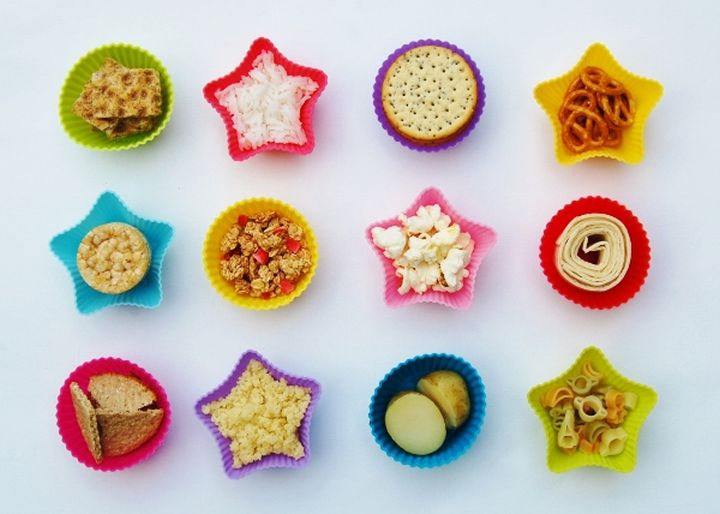Parents feeding their babies “first finger foods” for safety should pay attention to a new study: researchers who tested a handful of snacks marketed for babies suggest that only a few meet guidelines set by pediatricians. Some snacks could be a choking hazard, they warn.

American researchers out of the Cohen Children’s Medical Center in New York looked at nine products placed in the “crawler” category, meant for toothless babies who have to rely on their gums to break down food.
“We had a lot of parents asking us what finger foods to start with when they’re starting their kids on snacks and we didn’t know what products were available and what was being marketed,” Dr. Nicol Awadalla, a development pediatrician and study co-author, said.
“When we started taking a closer look we found that products with the same label and for the same life stage were all very different,” she told Global News.
READ MORE: How to get your kids to eat their fruits and vegetables
The American Academy of Pediatrics (AAP) says babies should start on finger foods when they’re able to sit up without support and when they can bring their hands or other objects up to their mouths.
Finger foods have to meet three criteria. They must be:
- Soft
- Easy to swallow
- Bite-sized or cut into small pieces
“Babies develop teeth from six months to two years old and some come even later. They use only their tongue and gums to mash whatever you’re giving them and if it doesn’t dissolve well, it hangs around the mouth for an extended period of time and could become a choking hazard,” Awadalla said.

Get weekly health news
READ MORE: 5 tips for packing healthy, kid-friendly back to school lunches
Awadalla and her co-author Dr. Ruth Milanaik, looked at the nine products to see if they met the AAP recommendations. The products were broken down into melts, cooked produce, puffed grain products, biscuits and cereal-like products.
One of the products was Cheerios. The other nine were Gerber Graduates snacks: Fruit and Veggie Melts, Yogurt Melts, Fruit Picks (in diced apples and diced carrots), Lil’ Crunchies, Wagon Wheels, Arrowroot Cookies, and Puffed (stars).
The researchers asked 41 adults to test the baby food products for softness, their ability to dissolve in the mouth and for size.
(They note the limitation to their findings: adults tested the products but they say it’s too difficult to test product safety on babies.)
The products were tested right out of the package. But keep in mind, babies don’t eat all of their food in a single sitting, so the snacks were also tested after being left out of the packaging for about an hour.
READ MORE: Preschoolers’ eating habits linked to future heart health risks, Canadian study suggests
Turns out, only two of the nine products met all three pieces of AAP criteria: the Apple and Carrot Pickups. The puffs, Cheerios, yogurt melts and Lil’ Crunchies fit the criteria, except for initial softness. They softened in the mouth though, so depending on how the criteria are interpreted, they still meet the requirements.
The Fruit and Veggie Melts dissolved easily, were of a “marshmallow” consistency and were small balls that were easy to eat. But when they were left out for about an hour, they became stale and “like a hard candy.” There’s risk of choking in that case, Awadalla warned.
The arrowroot cookies and wagon wheels were “too big for one bite” for the adults while the wagon wheels scratched the participants’ mouths.
“There were lots of comments from product testers that these were too big, scratchy and difficult to dissolve and to swallow,” Awadalla said.
READ MORE: Cartoon characters key to influencing kids to eat healthier, studies show
So far, Awadalla has only heard of anecdotal incidents of choking through her clinic and online.
“My advice to parents would be to think about these three pieces of criteria when choosing food for your babies. It would be a good idea for parents to try some of these products themselves and try to dissolve them without chewing them,” she suggested.
General Mills, the makers of Cheerios, said it’s “proud to have been trusted by moms of toddlers for generations.” On its website, the company provides information on when kids are ready to eat the cereal.
Gerber didn’t respond to a request for comment from Global News.
But Awadalla says that after her team’s initial findings, they contacted Gerber and the company ultimately removed its “crawler” designation on these products.
The full findings were presented on Monday at the Pediatric Academic Societies in Baltimore.
carmen.chai@globalnews.ca
Follow @Carmen_Chai






Comments